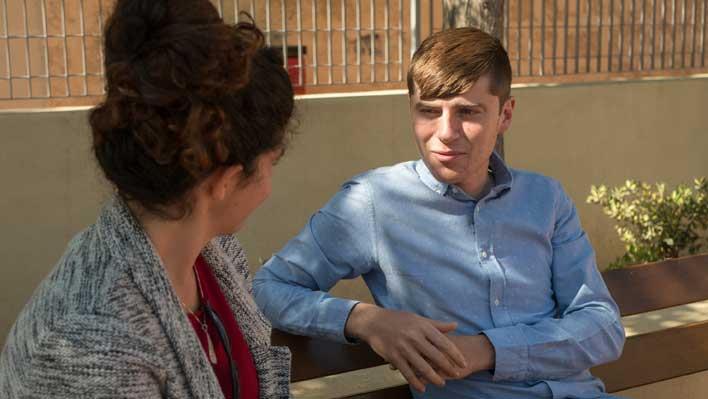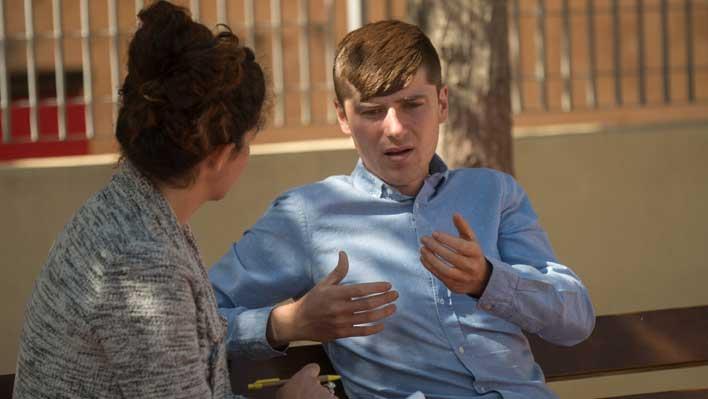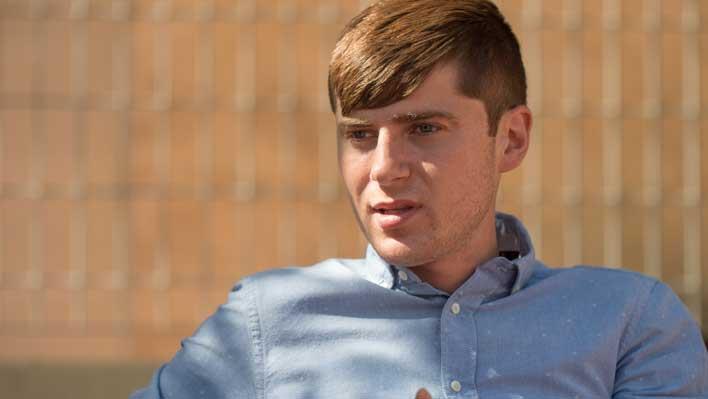For many, Steve Zammit Lupi is not a new face. Recently graduated from the University of Malta with a degree in European Studies, Zammit Lupi spent a good majority of his sixth form and university days showing a great interest in student activism. He is also a member of the Bicycle Advocacy Group, and one of the few who organised the student march for climate change back in March; as well working as a freelance videographer.
The Malta Independent on Sunday met up with Zammit Lupi to discuss what led him to contesting the local council elections, especially as an independent candidate, his proposals to improve Zebbug and his overall opinion on the role of local councils.
What led you to contest the local council elections as an independent candidate?
I have always had an interest in being an active citizen. Back at Junior College and in university I was fully involved in student activism. I ran for KSJC in 2013 and then I carried on for another two years in KSU. Being involved in student councils helped me get a better insight into how councils are arranged and how to communicate with people and students.
I have always lived in Zebbug. My mother’s family is from there too, and when I was younger, you would find me playing ball and riding my bicycle in the streets. When compared to other villages, Zebbug has remained a village in itself, being surrounded by rural countryside. People from Zebbug have their cultural identity and carry a sense of civic belonging; the community is quite strong and at the age of 23, I believe I can return to the village after all that it has provided me.
I also encountered the dilemma of how to contest. I was critical of the idea of having parties meddling with local councils. From my perspective, I feel that you have certain people on the councils that put their party’s interest before the common good, and that decisions are taken to score political points, rather than to improve the locality.
To put it simply, I am interested in Zebbug and have no intention to use it as a stepping stone to other things such as climbing any political party ladder. I just want to give residents the opportunity to elect someone whose main focus is the locality.

How has Zebbug changed throughout the years?
Like many other villages, Zebbug has seen an increase in its population and is facing new problems due to lack of proper planning in the past. I am trying to look at the future with optimism, so whenever I see a challenge, I say that this is a chance to turn it into an opportunity. So if we have a problem with traffic and parking, we should push for alternative modes of transport and provide residents a proper cycling network to the village square.
I am trying to look at things from a creative perspective, and not more of the same of what we already had. We need to look at local councils as a place where we can plan a sustainable future for the locality, rather than populist, short-term fixes that in the long term can lead to more complicated problems.
Last week you launched a survey to collect ideas and suggestions from Zebbug residents. What was the outcome?
In this survey, I asked residents to tell me their main concerns, what the council should focus on for the next five years, and I also gave them the opportunity to give me their own personal suggestions. Within five days, I had received feedback from around 637 residents, which is great when you consider that the village has a population of 10,500. Obviously, one must take into consideration that not everyone is online, and that not everyone online is going to fill in a survey, so the fact that around 600 residents found the time to give me their opinions, which I can apply to my manifesto, is extremely positive.
The feedback I received was also very good. The main concerns brought up were over-development, a lack of green and open spaces, poor air quality, and a lack involvement of involvement in the community among some residents. Despite the fact that Zebbug has a strong village community, you still find certain people cut off from that.
I was also impressed that more people over 40 replied to the survey than young people.

Do you think that this reflects the reality we are facing today, where young people are showing less interest in politics?
This could be a factor, yes. I also believe that many young people are full of potential but are not attracted to such a bipolar system, so the message I wish to give is that if you want to get involved in politics, to provide a service, your locality could be a great to start.
You do not have to go straight into the hands of a political party; I can understand that doing this independently is more challenging, but I have nothing to lose by trying. I decided to put aside my own political sympathies and focus on what I can provide to Zebbug
What has this journey been like so far?
Many people were interested in my candidacy and why I have decided to run as an independent candidate. People consider this move quite a bold one. Hopefully, on election day, this will translate into votes.

Do you believe that there is small movement of people moving away from the major parties and applying as individual candidates?
There is a shift, albeit a small one. I am the youngest candidate contesting as an independent, alongside two other young independent candidates in Gudja.
I think people are diversifying more, especially now with the reach of social media. It is easier to reach out to voters than before, when it was just traditional home visits, television and newspapers. Localities should not be reduced to a breeding ground for party politics. People are fed up of being hammered left, right and centre with all this political drama.
What exactly are you proposing in your manifesto?
I have over 70 proposals I wish to implement over the next five years. This may seem like a short time, but it’s enough time to get things moving. Sustainability and quality of life; my proposals all revolve around these two points.
I do not wish to portray environmentalism as simply ‘hugging a tree’, but I would like to get the message across that the environment is where we live, work and socialise. I’ll be pushing for alternative modes of transport, so that residents have the opportunity to choose how they wish to get around the locality safely. I want to introduce a park-and-ride system from outside the locality during village feasts and other events.
I also aim to improve Zebbug’s green infrastructure and plant more indigenous trees around the village. People are unaware of just how much space is being wasted on our streets and how it could be put to better use. Trees improve quality of life and well-being. They also bring street to life.
I also want the local council to engage in more social activities for the residents. We have a strong volunteer sector, including the popular band clubs, scouts and cultural and religious groups; there are many people who put many hours into volunteering.
I don’t want the local council to be a place where people simply go to pay their fines or pick up permits. I want it to be seen as a service to the people and part of the community. The past council committee has done some good work, and I want to build on that. I am ready to put myself out there and work hard.

Do you think many people see local councils as just a place to pay fines, rather than a central part of the community?
Many councils worry that most of their responsibilities have been taken over by the central government, so they feel powerless. But I feel that with more political will and thinking outside of the box, there is still a lot that local councils can offer.
There are also many people who have lost interest in their local council and voting due to the constant battle between the major parties. The general public is tired of this all and wants change. If I am elected, I will be ready to work with other councillors, irrelevant of their political background. Change can start locally.